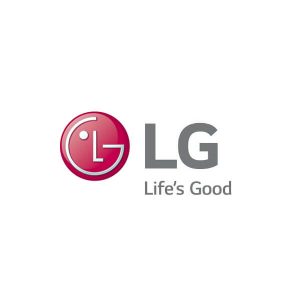You’ve probably heard of the storm called “The Perfect Storm.” It occurred in 1991 off the coast of North America. It caused millions of dollars in damage, disruption, and took 13 lives including 6 seamen on the fishing boat Andrea Gail out of Gloucester, MA. The storm was written about and turned into a movie. (Both called “The Perfect Storm.”) The storm got its name because of the meeting of three large weather systems – a low pressure system over the gulf stream, an arctic high-pressure system, and Hurricane Grace that started in Bermuda and for some odd reason thought it would be a good idea to leave the warm weather of Bermuda and go north.
What does this have to do with the price of solar panels? Other than the analogy, almost nothing. But yes, the US solar industry is in a perfect storm. That is, several “weather systems” are combining to drive the price of solar panels up. Before I explain further I do want to assure you that our company is prepared and confident that we’re doing all the right things to keep us in supply of panels. And as you’ll see, this storm is making solar an even better investment in these trying times.
So let me explain the analogy:
System 1: Electric rates are going up. Shocking I tell you….
Customers of the investor-owned utilities have been getting some shocks. But not from the wires. They’re getting the shocks from the electric bills. I looked at a customer’s Eversource bill just the other day and saw it was $0.30 per kilowatt-hour ($0.15 for energy and $0.15 for “delivery”). If you’re a typical home using ~10,000 kilowatt-hours a year, that’s $3,000 or $250 a month. Most people know that by going solar, they eliminate electricity inflation for that portion of the bill the solar covers. Impact: Pushing demand up.
System 2: Taxes, we don’t need no stinkin’ taxes
A couple of years ago, the federal solar investment tax credit was slated to drop substantially. A tax credit reduces the taxes you pay dollar for dollar (unlike a deduction). Through some backroom dealings and “pinch your nose” trades, the solar industry was able to get the tax credit extended. Well, we’re there (again). At the end of this year, the federal tax credit for solar is slated to drop from 26% of the system cost to 22%. No, that’s not a 4% drop. That’s a 15% drop in the tax benefits for going solar.
Since Americans really love their tax breaks, they are scrambling to get their solar systems installed before the end of the year. Impact: Pushing demand up.
System 3: Pandemic Schmandemic?
In case you’ve forgotten, we are in a pandemic. And you’ve probably heard that the pandemic has disrupted “the supply chain.” Yes, sick people at the docks can’t load or unload ships. Sick truck drivers can’t drive, and people stuck at home are buying more stuff. All of that has made it harder to get products, including solar panels, across the pacific and on to your roof. Impact: Pushing supply down.
System 4: The Grid is falling; the grid is falling….
Price of solar panels aside, people are realizing that the grid isn’t as reliable as the investor-owned utilities would have us believe. Cases in point: The Texas winter of 2021 and the California summers.
In the winter of 2021, it got cold in Texas. Unfortunately, the grid wasn’t “winterized.” Meaning that when it got cold, much of the utility-scale generation stopped working and more than 4,500,000 homes and businesses lost power. People resorted to burning their furniture to stay warm and the loss of power is estimated to have caused $195 Billion (yes billion) in damages. And at this counting, 246 people died because of the storm. Most of those due to exposure and carbon monoxide poisoning.
Meanwhile, since 2015, five of the 10 worst California wildfires were attributed to California’s Investor-Owned Utilities not doing enough to prevent their equipment from starting those fires. In response and as a preventative measure, when the risk of fires is high, the utilities shut down the grid!
Grid reliability is sparking solar and solar battery demand and is the number one reason people tell us why they are interested in purchasing a solar battery backup system. Impact: Pushing demand Up.
System 5: Climate Change is Real. Who knew?
Despite the experts telling us about climate change since about the 1950s when scientists noticed real increases in carbon dioxide, people are just now taking it seriously. Maybe it’s the awful warm summers. Maybe it’s the serious weather events. Maybe it’s that the outer beaches on Cape Cod are losing 3 feet a year to sea level rise. Who knows?
But on my solar sales calls, when I discuss the return-on-investment of a solar installation, most prospective customers tell me that the return is less important than “doing their part” to help the planet. Amen. Impact: Pushing demand up.
System 6: LG, So Glad We Knew You

We have been a big fan of LG solar panels. They are well made, efficient, competitively priced, and supported with a great warranty. But much to our surprise, on February 23rd, LG announced they were leaving the solar market and shutting down their US manufacturing. If I had to bet, panels are now a commodity. Companies like LG don’t do business in commodity markets. Why? Because they can make more money in other markets. (Mind you other multinationals like Bosch, Panasonic, and Sharp have also left the panel business, probably for the same reason). LG’s departure has left a big hole in the US solar panel market. Making a product in high demand, just a bit harder to get. Impact: Pushing supply down.
System 7: We’ve met the enemy, and he is us (With apologies to Walt Kelly and Pogo)
Some time ago, China was accused of dumping solar panels on the US market. (While this may be true, it’s our own fault for allowing manufacturing to move overseas. But I digress.) So naturally, the former guy decided the remedy was to put a tariff on solar panels. Or, in layman’s terms, make panel buyers in the US pay more so China would stop sending us panels? (facepalm)
That disrupted supply a lot but apparently not enough. Why, because just recently the US Department of Commerce decided to investigate panel makers in four Countries (Malaysia, Thailand, Vietnam, and Cambodia) because they think China might be “circumventing” export restrictions by shifting their production to those countries. (To be clear, The USDOC is responding to complaints by one small US company called Auxin Solar. Auxin claims they are “creating American Manufacturing Jobs.” But their USDOC complaint threatens ~200,000 US solar installation jobs).
Regardless, this action has sent a shock wave across the industry. And made manufacturers in those countries curtail shipments to the US for fear of retroactive tariffs. Impact: Pushing supply WAY down.
Weathering The Storm
I would love to say “Never mind, problems solved. The world suddenly got rational.” but as sensible readers, you know better.
Instead, this “perfect storm” is a management problem. And we are and have been managing it.
Months or years ago, we were warned about or foresaw many of the storm systems described above. And as these challenges presented themselves, we started “hardening” our systems to be ready for them.
For example, we were warned about and responded to the news on the price of solar panels increasing. Thus, we won’t have to go back to you for additional funds. We’ve built great relationships with our distributors by staying current with our bills and paying on time. We have alternative equivalent products we can offer if your quoted panel becomes unavailable. And we’ve added several other processes to ensure your project gets done on time and on budget
Unlike those unfortunate sailors on the Andrea Gail, we’ve gotten better warnings so we could see the storm systems coming. And now we are doing the work to get us and our customers to shore safely.






3 Responses to “The Perfect Storm Driving Up the Price of Solar Panels”
Great article.
Mark: Well done and very informative. You’ve succeeded in guessing what questions I would ask if I wanted to ask them.
Even at the current prices for solar equipment (including panels)
solar remains a good deal.
Absolutely! Thanks for the comment, Andy.
The comments are closed.